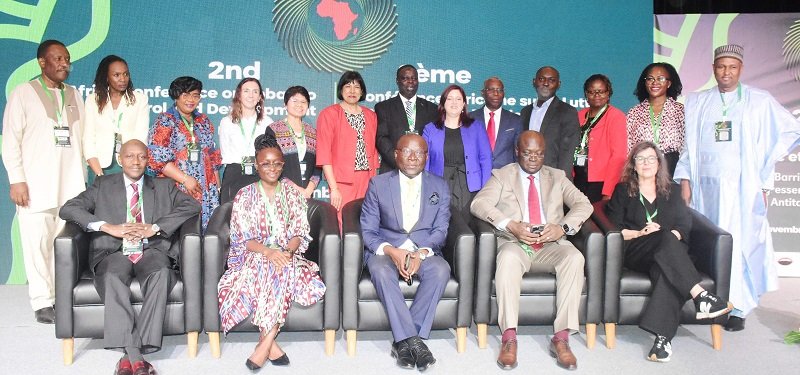The government has been urged to intensify tobacco control efforts in view of the rising smoker population on the African continent to avert a public health crisis.
Mr Mamadou Biteye, the Executive Secretary of the Africa Capacity Building Foundation (ACBF), a non-governmental organisation, who made the call, said that was crucial to not only protect the health of the population, but help promote sustainable development.
He was speaking at the opening of the 2nd African Conference on Tobacco Control and Development in Accra yesterday on the theme: ‘Breaking Barriers, Building Futures: Advancing the Tobacco Ecosystem in Africa.’
Organised by the ACBF in collaboration with the Centre for Tobacco Control in Africa (CTCA), the two-day conference was to provide a platform for participants to share ideas, experiences and research in the area of tobacco control in Africa while providing solutions that would enable the continent to accelerate the implementation of anti-smoke policies in order to ensure a tobacco-free Africa.
The World Health Organisation (WHO) estimates that the number of smokers in Africa is expected to double from 84 million in 2000 to 208 million by 2030 if efforts are not accelerated to control the menace.
It projects growing use of tobacco among the youth in Africa, ranging from 8 per cent to 43 per cent for boys and 5 per cent to 30 per cent among girls.
Latest “Ghana STEPS” report by the WHO shows that approximately 930,000 (4.8per cent) of Ghana’s adult population currently smoke.
It stated that more than half of current tobacco smokers smoke on a daily basis with about 70 per cent of these individuals smoking manufactured cigarettes and consuming at least three sticks per day.
It found that more young women between 18 and 29 years in the country were engaged in various forms of smoking on a daily basis more than their male counterparts.
Mr Biteye said with 50 out of 55 member states of the African Union (AU), including Ghana, having ratified the WHO Framework Convention on Tobacco Control (FCTC), and the protocol on illicit trade in tobacco products, it demonstrated a significant step towards curbing tobacco use.
“Tobacco control is not an isolation issue. It intersects development sectors such as education, agriculture, and finance.
It is only through collaboration and a unified approach that we can elevate tobacco control issues on the continental level”, he explained.
In a speech read on his behalf by the Technical Advisor at the Ministry of Health, Dr Darius Osei, the Health Minister, Dr Bernard Okoe- Boye, recognised the need to accelerate efforts at controlling tobacco within the Africa ecosystem.
He noted that Africa had become a target and potential market for the tobacco industry due to its youthful population, with about 60 per cent under the age of 30.
This, he noted, required African leaders to be proactive and work together to protect its population particularly, the youth.
The Minister further indicated that Ghana was committed to implementing the FCTC, hence the enactment of the Public Health Act (Act 851) which contained important tobacco control measures and the Tobacco Control Ordinance (LI2247) in 2012 and 2016, respectively.
“The government intends to continue with its effort to better protect the health of our population, especially among the youth,” he stated.
BY ABIGAIL ANNOH

